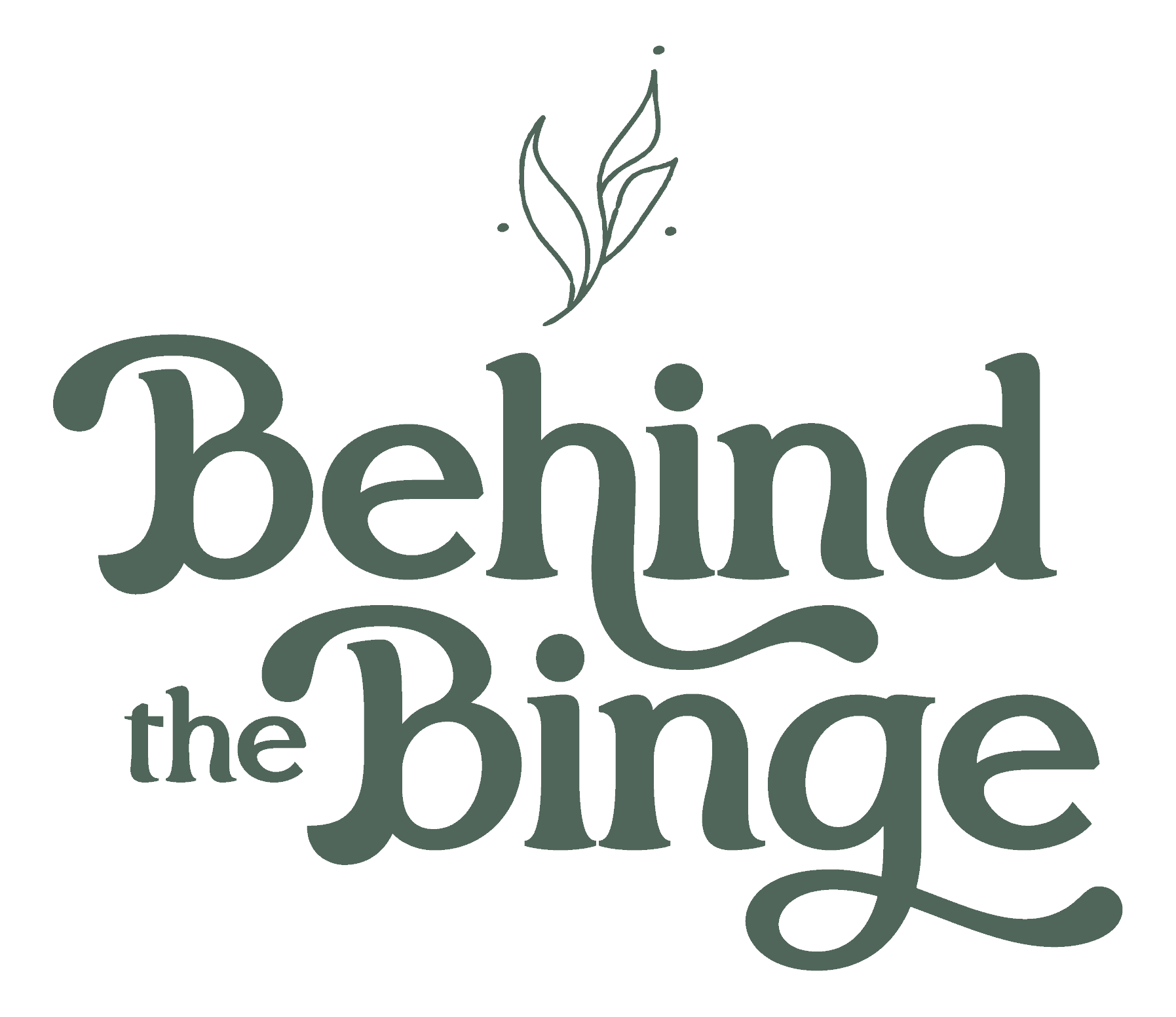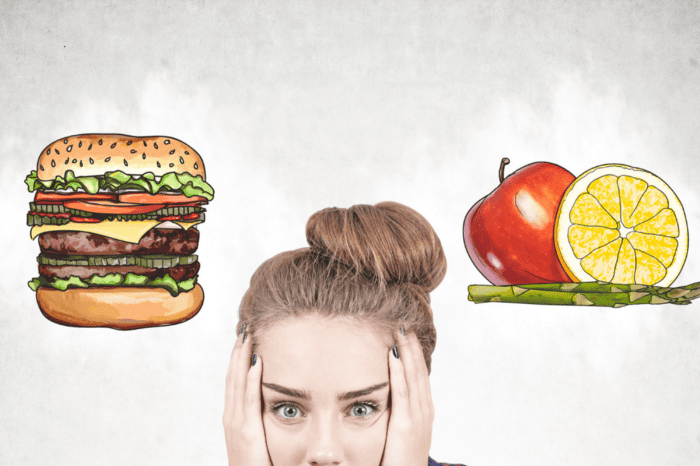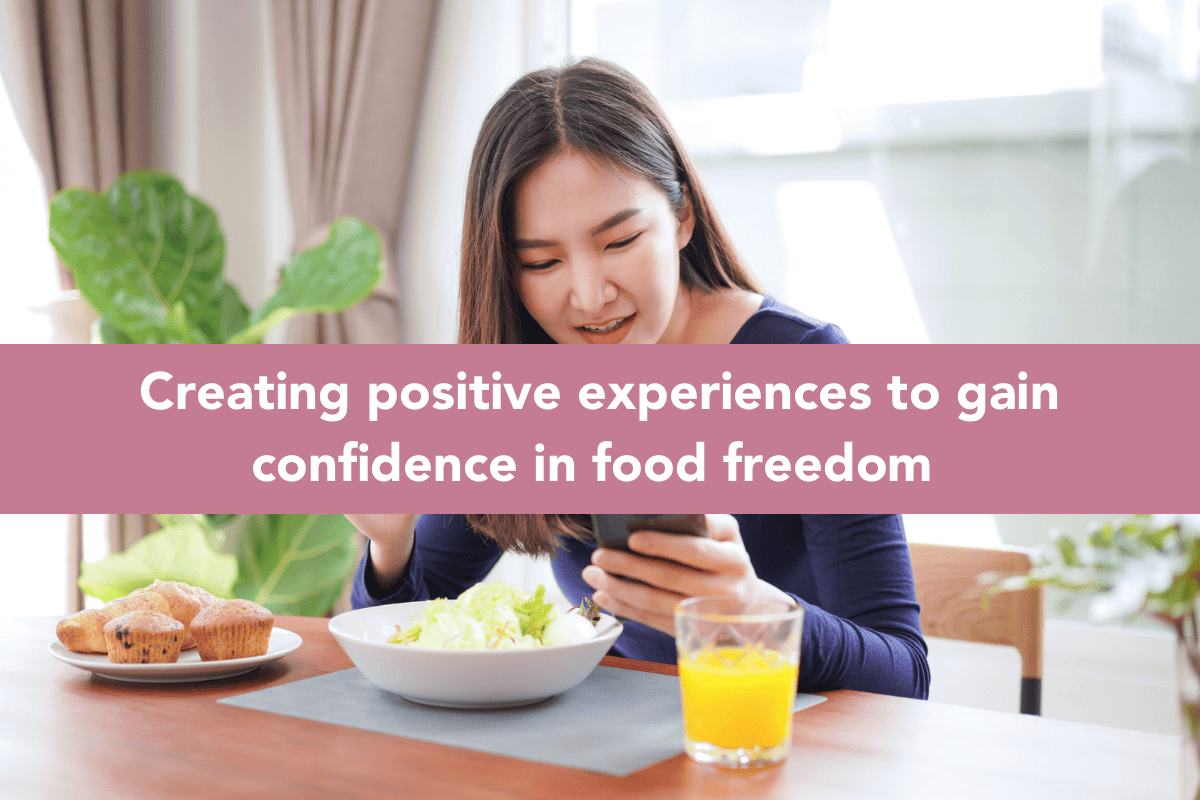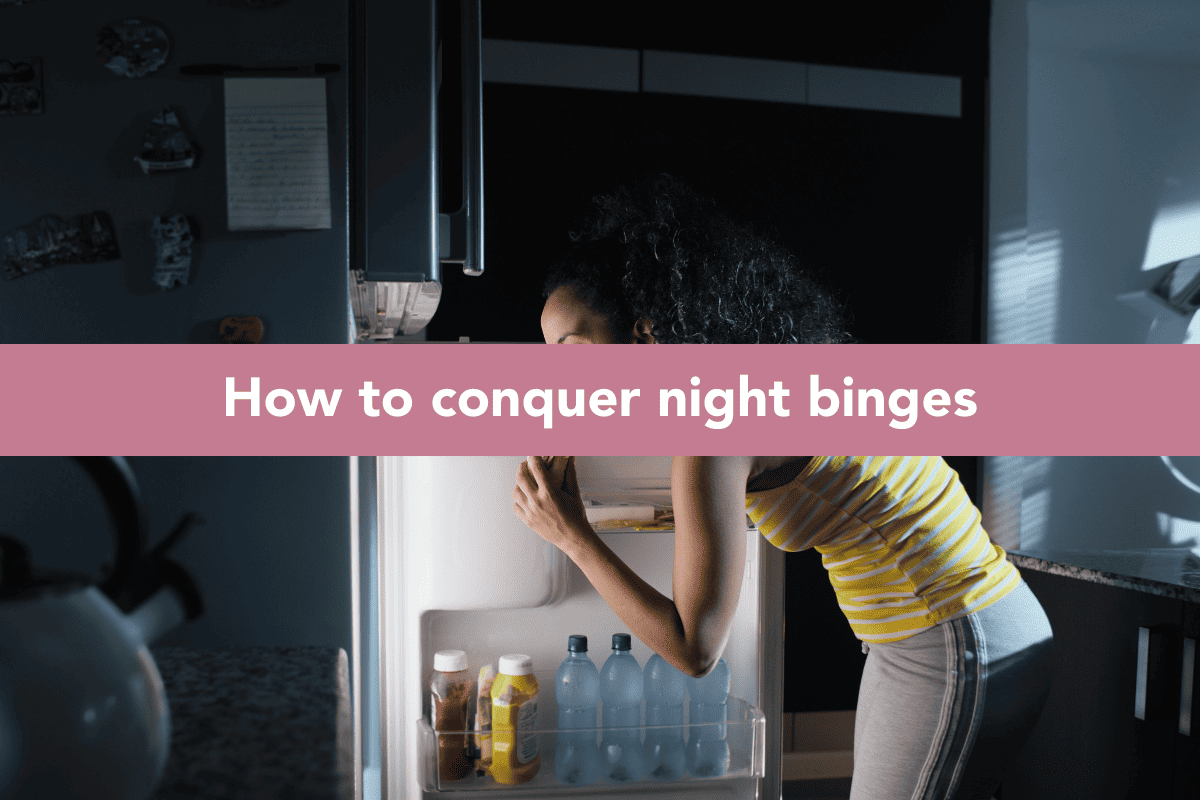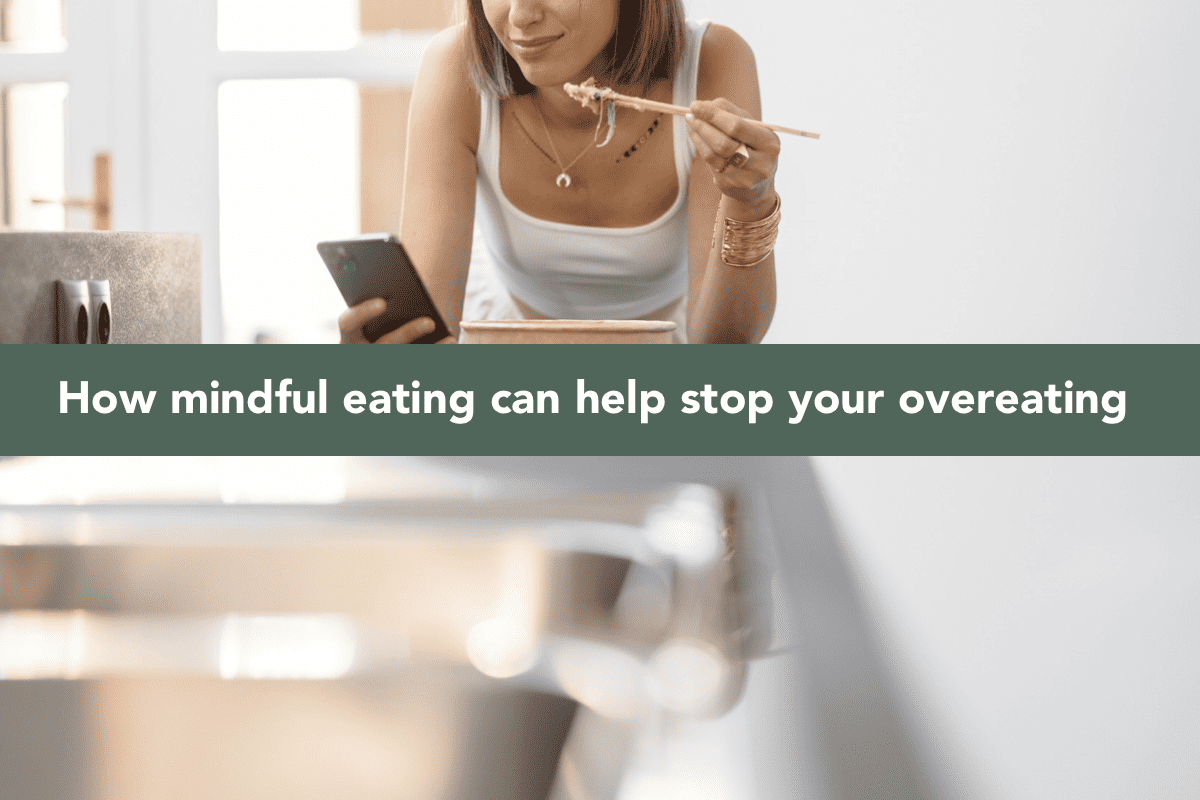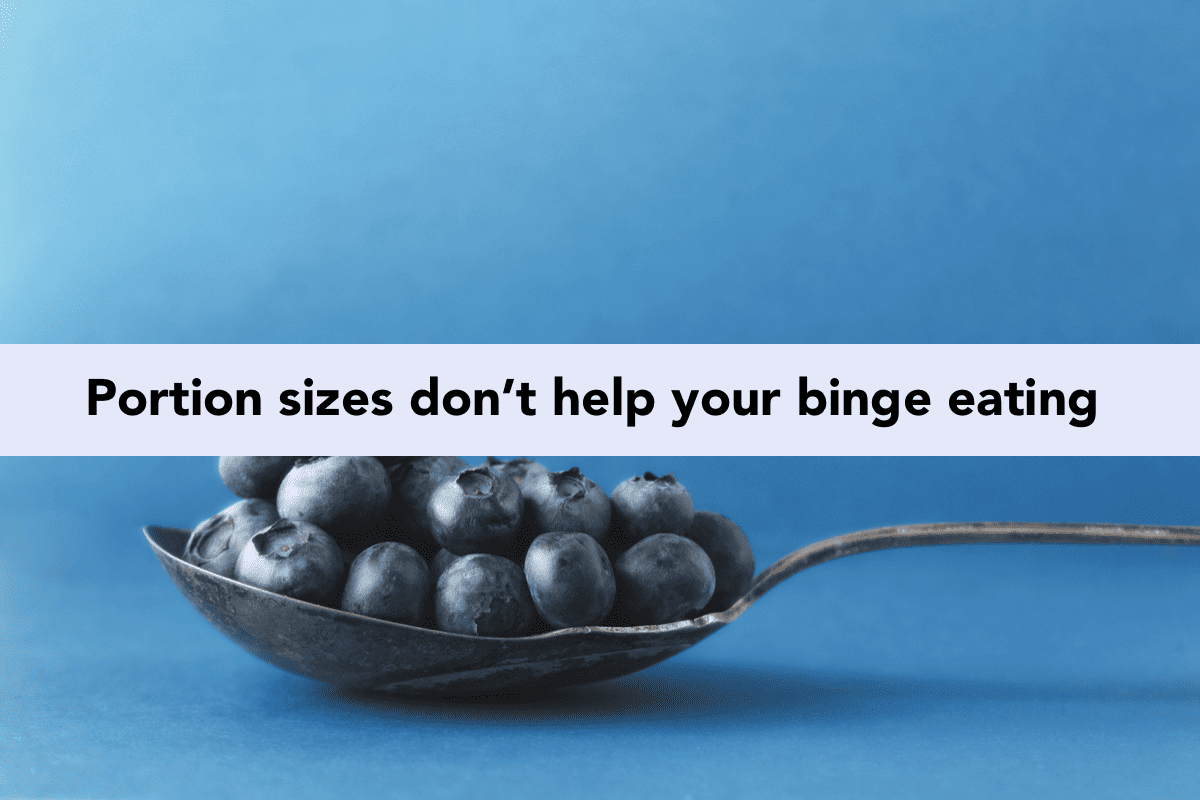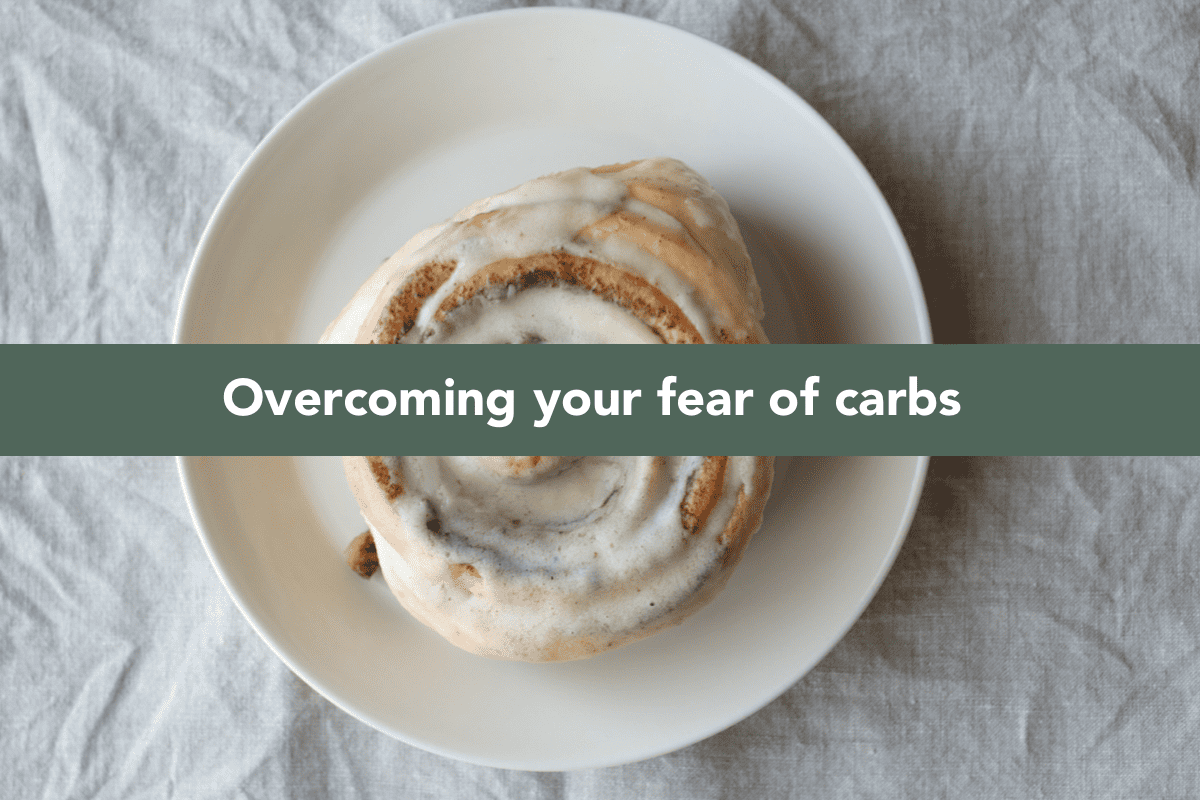I get asked all the time “how do I stop cravings” and usually my answer to that is “eat what you’re craving.” I mean truly the best way to curb a craving is to satisfy that craving with the food you’re craving! But what if that craving feels more extreme? If your cravings feel out of control, this could lead to overeating on less-nutritious foods more often, or even bingeing. If this sounds like you, let’s chat about the reasons why this may be.
When I google “how to stop cravings,” the first two solutions that come up are for diet programs. Do you want to know the best way to continue to get extreme cravings? Go on a diet and restrict those foods.
The other solutions that show up are filled with information that puts a bandaid on dealing with cravings. An article will say“Go for a walk! Drink more water! Eat more protein! Manage your stress!” etc; but what is this actually doing? This is putting a bandaid on a “problem” instead of solving what is causing the “problem.”
I put “problem” in quotes because I don’t think having a craving is necessarily a problem. A craving is often a signal from our body that we need more of something, whether that is genuinely the food we are craving or just the stimulation we get from that flavor. There are instances where cravings may feel more out of control and that’s where I can step in. I give you practical tips to identify where these cravings are coming from and implement some action steps to make them more manageable.
Before we chat about what I do recommend, I want to talk more about what I’m not going to recommend. I am not going to tell you to throw out the foods you crave, never buy those foods again, or chew on ice chips instead! HELL NO!
We know that restriction causes further cravings and could lead to binge eating, which I talk about more in-depth in this video here. if you want to learn more about why restricting is NOT the answer feel free to watch!
It’s really important to me to get to the “why” behind why something is happening. So this is where I’d like to start.
Why do we get cravings? There are many reasons. Like I mentioned earlier, sometimes a craving is simply a signal from our body. You know that feeling when you wake up at 2 am and just HAVE to get up and get a glass of water? So you stumble into the kitchen and chug a glass of water like it’s pure Icelandic glacier water? Yeah, that “craving” for ice-cold water is a really strong signal that you’re probably dehydrated, especially if it woke you up from your sleep.
This happens with food cravings as well. Our bodies are VERY smart. If we are deficient or lacking in something, there’s a good chance it’s what we’re craving.
One of the biggest reasons we get extreme cravings is from not eating enough. When you haven’t eaten enough to fuel your body, either by literally not eating enough or going too long between meals and snacks, that hunger may manifest as a strong craving. If this happens consistently, this would be a good time to look at your meal timing and eating routine to discover where and why this is happening. Odds are, there’s a long period of time throughout the day where you’re glued in at work and might need to make time for an afternoon snack. Or that bland salad you eat for lunch every day just isn’t enough food to fuel your body
But what about when that restriction is intentional? I had a client once who explained to me how she gets extreme cravings for sweets after dinner. She said even if she feels like she eats enough and is full, she can’t help but want to binge out on an ice cream tub every night. When I took a look at what she was eating throughout the day, I discovered that she still had some fears about eating carbs in the evening so she did not include them during dinner. We worked through this mental restriction over time, and once she started to introduce carbs again with dinner, the cravings were more manageable. This doesn’t mean she NEVER wanted ice cream after dinner ever again, I mean who doesn’t want ice cream as dessert sometimes? But what this did mean was she was able to enjoy some ice cream without feeling out of control or bingeing on it.AND she didn’t have the cravings every single day anymore.This is a good example of how restricting carbs at night made my client crave more carbs from the ice cream. Her body needed more carbs in the evening to feel her best!
So for the sake of another example, let’s say she was eating carbs with dinner but still had these extreme cravings afterward. If she still had mental restrictions around having sweets after dinner, this is actually enough to cause more of a desire to have it. When we think “I should do this, I shouldn’t do that,” making these types of statements to yourself are very sneaky rules. They don’t sound super restrictive, they sound more like guidelines; which is why they’re sneaky!. But putting parameters around what we should/shouldn’t eat can cause us to desire that food even more and lead to the “all-or-nothing mindset.” Meaning if you allow yourself to have some of the “shouldn’t” eat food, this leads to feeling like it’s now or never, leading to a binge. It’s better to trust yourself, have a little ice cream, and move on.
You might be thinking about how eating sugar impacts cravings. Sure, it is true that eating more simple carbs (aka cookies, donuts, ect.) can spike blood sugar then quickly drop blood sugar leading to more cravings, that DOES NOT mean you can’t have simple carbs. Balancing simple carbs with fat and protein can prevent blood sugars from spiking and falling quickly, preventing that crash that leads to further extreme cravings for more carbs. If you experience these cravings after eating simple carb, then consider eating it with some protein or fat and see if that controls your cravings a bit more.
What about that feeling when you come home after a long day and you just want to veg out on a bag of chips? Is that a reasonable craving? My answer is yes and no. While it’s reasonable to want to cope with a bag of chips, it may not be what your body is actually asking for at that moment. Meaning, if you get strong cravings in an emotional state, that’s a sign that an emotional need is not being met and that craving is not about the food. The food may serve as a temporary distraction to the emotional need, but eventually, that emotional need will still need to be met. I’m not saying that a candlelit bath tastes the same as a bag of chips, it’s a good idea to satisfy your craving while ALSO developing an understanding of what emotional need is not being met and finding a way to do so.
Lastly, sometimes when you’re walking in the mall and smell the delicious pretzels from Auntie Anne’s you just want it. You’re not restricting it, there’s not an emotional need not being met, you just want it! And that is ok. Honor your craving and move on with your day.
This list could go on and on and on, that’s why if you feel like you can’t get to the bottom of your extreme cravings, it’s important to work with a healthcare professional like a Registered Dietitian who can help you uncover your unique “why” behind your cravings.
I have a group coaching program called Binge Freedom Breakthrough. And in this program, we work on building a trusting relationship with your body, overcoming binge eating, and moving forward in creating a healthful and balanced life. I’d love to help you get to the bottom of your extreme cravings. If you’re looking for more information, apply here: https://hello.dubsado.com/public/form/view/5ea76ad80c93a969a0e35248

Marissa Kai Miluk, MS, RDN, LD
Reviewed and Edited by Kaitlyn Allen MS, MEd, MS, RD 